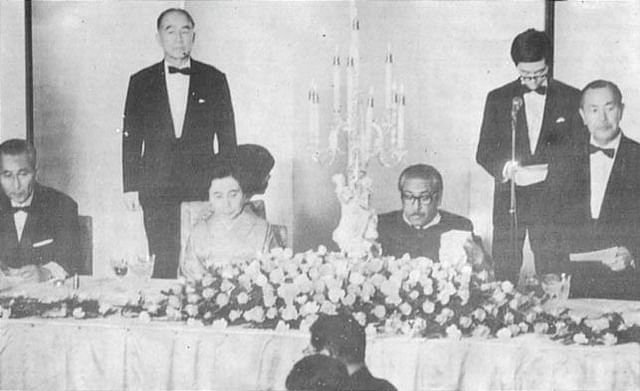If you ever get to know a Japanese person, the topic of ‘national flag’ will come first in the conversation. A large part of the Japanese know or know Bangladesh through our flag. When the children of this country are taught country identity in school, they know about South Asia Bangladesh, its culture and people. Due to this strange resemblance between the flags of the two countries in the red circle, Bangladesh has attracted a lot of Japanese. Having passed all the tests of friendship, Japan is now the biggest partner of Bangladesh’s most trust and confidence. Standing on the golden jubilee of relations between the two countries in the post-independence period, this country of East Asia is the great hero behind the development window of Bangladesh which is being praised in the world court. February 10 was the ‘golden jubilee’ of Bangladesh-Japan relations in the bond of friendship and love.
When I came to Japan for higher education about eight years ago, I didn’t know much about the country. In addition to my studies, I have been working in one of the top online media outlets in the country for the last six years. Apart from the formal diplomatic relations, the sincerity that we have seen in the development of Bangladesh-Japan relations between the two countries, I do not know whether Bangladesh really has any other country.
Japan’s attempt to stand by Bangladesh during any calamity and calamity since the time of Liberation War started with the hand of Father of the Nation Bangabandhu Sheikh Mujibur Rahman. Japanese Labor Minister Takashi Hayakawa visited Bangladesh on February 10, 1972, the month after Bangladesh was officially recognized. After greeting Bangabandhu on that visit on 14 March 1972 on behalf of the Japanese government, he handed over the invitation letter to visit Japan. Before leaving for Bangladesh, Takashi Hayakawa himself called for the recognition of Bangladesh in the Japanese parliament. However, later in 2012, the Bangladesh government awarded him for his special contribution to the liberation war.
Following this invitation from the Japanese government, Bangabandhu visited Japan in 1973 and requested Kokei Tanakar, the then Prime Minister of Japan, to build a ‘Jamuna Bridge’ to facilitate the movement of the capital Dhaka with the northern towns. That Japanese government set up a fund of 9,000 million Japanese rupees to rebuild war-torn Bangladesh. Bangabandhu’s visit laid a great foundation for the relations between the two countries.
A mourning motion was also moved in the Japanese Parliament in memory of Bangabandhu after the infernal massacre of ’75. Since then, when there has been a crisis between the two countries, it has been dealt with amicably. When the DC7 of Japan Airlines or Flight 472 was hijacked by the extremist Red Army of the country and brought to Dhaka Airport in September 1976 with 151 passengers, the then Bangladesh government was the mediator to take it back to Japan. The Japanese still remember that contribution.
Since independence, Japan International Co-operation Agency (JICA) has been providing financial assistance and ancillary assistance for socio-economic and infrastructure development in Bangladesh, including roads and communications, bridges, electricity, education and medicine. Japan is taking Bangladesh forward through this agency of the government. Ito Naoki, the Japanese ambassador, has already mentioned in an article in Prothom Alo what exactly is being done in Bangladesh, which I am not covering here.
Since independence, hundreds of students from Bangladesh have been coming to study in Japan every year on scholarships to pursue higher education. Unselfishly the universities of this country are helping our university teachers and students to develop knowledge of science and engineering. The children of our country come here to study and get acquainted with the new technologies as well as the culture here, through which the culture and harmony of the two countries are being exchanged.
For the past few years, the Japanese government has been recruiting Bangladeshi workers in the skilled human resource category along with other countries under its own funds and supervision, which is a golden opportunity for our expatriate income.
When the world’s major powers turned their backs after the militant attack on the Holy Artizan in 2016, then-Prime Minister Shinzo Abe vowed to stand by Bangladesh. They also provided technical assistance to Bangladesh in combating militancy. Seven Japanese nationals were killed in the attack.

